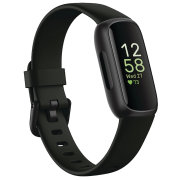
Qualcomm is gearing up for an augmented reality revolution with the introduction of their mobile augmented reality SDK, which will first be available for Android starting with a a beta this fall. Qualcomm eventually plans to get their SDK on additional platforms, citing the “quantum leap in the mobile experience” that augmented reality brings with it. Initially partnering with Mattel and Unity Technologies, Qualcomm hopes to make a splash in a technology sector that is still finding its legs.
Mattel is bringing an augmented reality version of their popular Rock ‘Em Sock ‘Em game as a proof of concept for the sort of ways the technology can be used. That is slightly refreshing, as the lion’s share of AR apps thus far have focused on pasting a virtual layer for locating points of interest in an area on top of images being brought in by your phone’s camera. Utilizing AR to bring a degree of virtual reality to mobile games could bring a Microsoft Kinect-like experience to Android handsets.
Unity Technologies is including Qualcomm’s AR SDK in their Unity for Android game development package, as well. While both companies and their products are mentioned in the official press release, we can’t seem to dig up any images or video of the SDK being put to use.
Developers can sign up now for the beta, and Qualcomm will be hosting a developer challenge based around their SDK when it is released this fall. More information can be found here.
[Press Release, via TalkAndroid]









i’m still waiting for the xray vision sdk
compared to layar API, how good is this ?
The one real good (subjective, I know) uses of augmented reality (not extensive) in game play is Speck Trek where you chase the ghosts and capture them.
spec trek is a great idea but android is now capable of much better 3D graphics
http://www.talkandroid.com/wp-content/uploads/2010/06/augmented-reality.jpg
“While many current augmented reality applications rely on a compass and GPS, Qualcomm’s SDK is based on world-class computer vision technology recently acquired from Imagination Computer Services GmbH. Vision-based augmented reality provides a greatly enhanced user experience by allowing computer graphics to be tightly aligned with real world objects. It enables developers to build games, extend print and TV media with interactive 3D content, and create educational applications that bridge the digital and real worlds. “